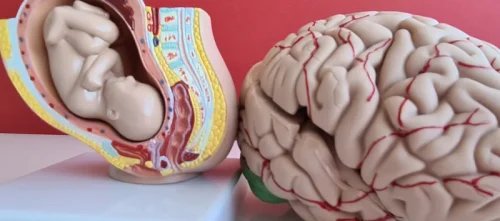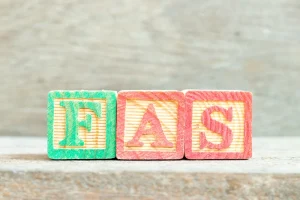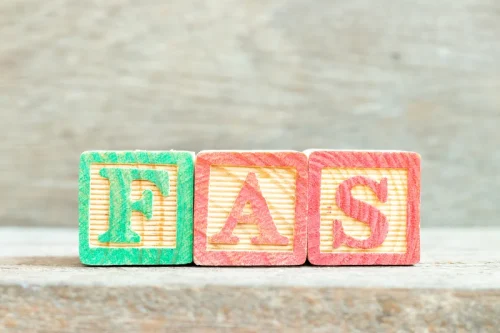
According to the rough estimates in the table, such an individual should pass a urine drug test in 10 days. To simplify it, we boiled down some research studies into simple enough figures for THC detection in urine. If you’re faced with a lab test, you will almost certainly have to ‘pee in a cup’. Edibles won’t usually last in your system if you use marijuana once in a while. But you should still stay away from edibles between one and three days from your test.
- Look out for white, fuzzy spots or unusual smells as signs of mold contamination.
- Unfortunately, much of the information available online about this topic is misleading at best.
- Though many factors play a role in how long nicotine stays in your system, it generally leaves your blood 24 hours after stopping tobacco use.
Heavy metals in cannabis: What to look for and how to avoid them
Does that mean that everybody who has smoked a joint in the last 90 days will test THC positive? Of course not; it depends on how frequently you smoke, M/F and how much you weigh. On average, urine tests can detect THC from three to seven days. That range will depend on how much marijuana you use and for how long. Tests can detect THC in urine for up to 30 days in a heavy user who uses weed at least once per day. Trying to manipulate a drug test using detox products or other methods rarely works and can even be dangerous.
- After using cannabis, our liver metabolizes THC into THC-COOH which is then stored in urine.
- I ate a cookie 40mg and tested dirty 2weeks later iam 73years old and weigh195lbs.
- However, while exercise might help the body metabolize more THC, exercising too near to a test may also cause a positive result due to having THC in the bloodstream.
Weed stays in urine from 7-70 days
Body weight and composition can also affect cannabinoid metabolism. Obese individuals may metabolize cannabinoids more slowly than non-obese individuals. Individuals with faster metabolisms may eliminate https://ecosoberhouse.com/article/alcoholism-treatment-program-and-options/ cannabinoids more quickly than those with slower metabolisms.
General Health
How long it stays also depends on how your body processes the compound and how it was consumed. In many cases, the symptoms of weed withdrawal will dissipate with time and can be treated without medical attention. However, if your symptoms last for more than a couple of weeks, you should see your healthcare provider or mental health professional.

That’s because detection time depends on various factors, including the type of test, frequency of consumption, and last use of cannabis. Ultimately, there is no definitive method to get cannabis out of the body faster. However, strategies that may help to remove cannabis from the body quicker involve breaking down body fat cells, speeding up THC metabolism in the liver, and how long does weed stay in your system removing THC metabolites from the intestines. An older study notes a slight increase in THC levels following exercise in people who regularly use cannabis.

Many who are facing a drug test but are unwilling to fully give up cannabis turn to synthetic cannabinoids in the hopes of cheating traditional tests. Yet, these alternatives, commonly referred to as “K2” or “spice,” are unpredictable, showing side effects ranging from nausea to seizures that have caused a spike in overdoses in recent months. And many private companies now include tests for synthetic cannabinoids in their repertoire, making this approach both dangerous and futile. Hair tests tend to have the longest detection window, capable of registering the levels ofa non-intoxicating THC metabolite called 11-nor-delta9-caboxy-THC (THC-COOH) up to 90 days after cessation. This type of testing is more expensive and time-consuming than qualitative tests and is normally reserved for people who have tested positive in a qualitative test.
The legality of delta 8 THC is complicated and varies from place to place. D8 is often made from hemp, which became legal in the United States under the 2018 Farm Bill. 3 This bill legalized hemp products containing less than 0.3% of regular D9 THC. Since delta 8 is derived from hemp, it falls into a gray area in many states.

Cannabinoids interact with the ECS (endocannabinoid system) in the body. Delta 9 THC, usually referred to as THC, is known for producing a strong high, while CBD is non-intoxicating and often used for its potential calming or anti-inflammatory effects. Delta-8 falls somewhere in between – it can make you feel relaxed or mildly euphoric, but its effects are usually milder than delta 9. When withdrawing from marijuana, you might feel extra edgy and irritable, have trouble sleeping and eating, and may even get a stomachache or headache. Some people compare it to the feeling you get when trying to quit caffeine.
As the body stores THC in fat cells, regular exercise may help to break fat cells down and release THC into the blood for further excretion. However, while exercise might help the body metabolize more THC, exercising too near to a test may also cause a positive result due to having THC in the bloodstream. After use, cannabinoids reach the hair follicles via small blood vessels and from sebum and sweat surrounding the hair shaft. Blood tests typically detect recent cannabis use or use that has occurred within the last 2–12 hours. In another study of about 4,000 adults living with heart failure, the extended-release form of metoprolol reduced heart rate by about 8-14 beats per minute (BPM).
- ” just like its cousin delta 9, delta 8 can show up on standard drug tests because they don’t specifically test for one form of THC over another.
- That’s your circulatory system, or more specifically, the blood flowing through it.
- When you eat an edible, cannabis has to go through the entire digestion process before cannabinoids enter the bloodstream.
- A 2017 review found that a person who has used cannabis just once may receive a positive urine test for up to 3 days after last use.
- Not everyone who stops smoking marijuana experiences headaches.
Your body could have metabolites present anywhere from 45 to 80 days. As we better understand cannabis and its interactions, it’s essential to consider these varied timelines in both personal and professional contexts. Before you discreetly type, ‘How long does marijuana stay in your urine’ into the search bar, awaiting that upcoming drug test, allow us to present a concise and practical guide. It’s all about unraveling the mysteries of cannabis in your urine and sprinkling in some tips for a faster detox.

Recent Comments